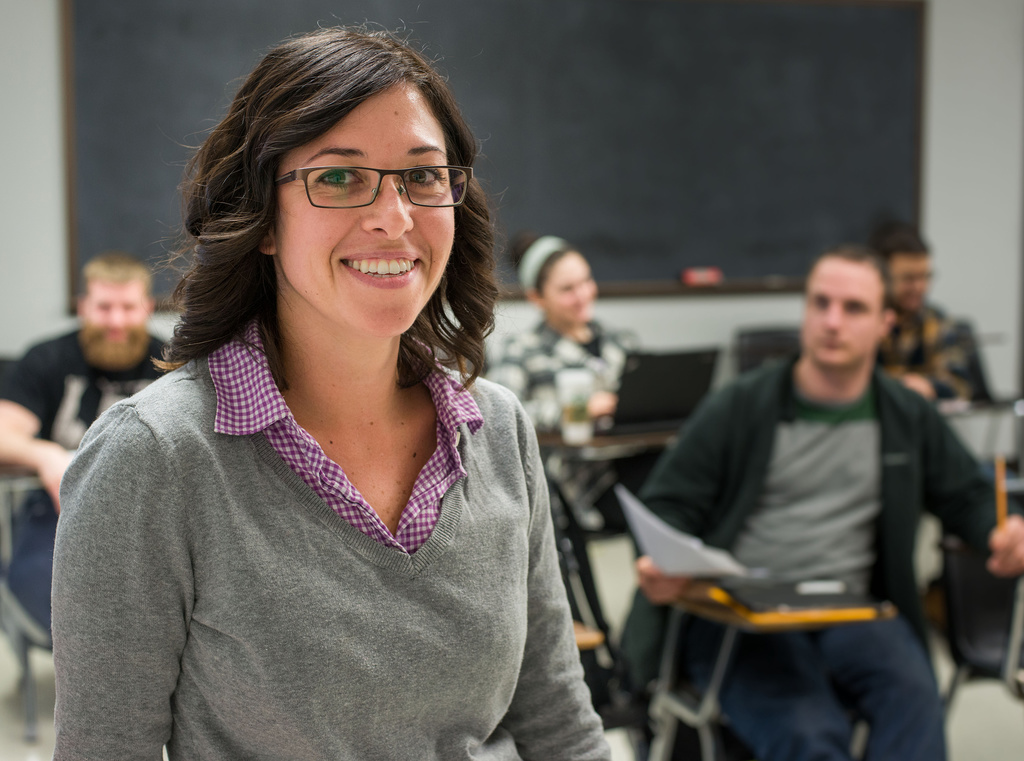
While Wendy Rasmussen teaches her students about how their lives will change after they complete their military service, she is preparing herself to go on active duty.
Rasmussen, a counseling psychology doctoral student in the University of Iowa College of Education, has just finished her second semester of teaching the class, “Life After Service.” The course taught students about the biological, psychological, and social reactions one has after a stressful life event such as serving in the military.
“I wanted the class to be holistic, comprehensive,” says Rasmussen who is from San Diego, California. “We talked about relationships, but also problems sleeping, or issues at work.”
Rasmussen is in the Navy Health Professions Scholarship Program, and is on her way to becoming a navy psychologist.
“This scholarship program was a great match for me,” says Rasmussen. “Military trauma was an extension of an established interest, and I feel like I can make an important contribution to the field.”
The Navy Health Professions Scholarship covers three years of tuition, fees, books, and includes a stipend. During her education, Rasmussen serves on inactive reserve, but she will be promoted to lieutenant and go on active duty for three years. She plans to obtain her doctorate in Counseling Psychology in summer of 2016 and will go on active duty in fall of 2016.
This class will be adapted and expanded next fall, thanks to a new initiative. To read a related story, see VA partners with University of Iowa in pilot program for veteran education.
The “Life After Service” class was originally called “Life After War” before Rasmussen began teaching it. This spring semester, the class was held from 3:30 to 6:15 every Monday for the seven students enrolled.
“I noticed last semester that the needs of the students I had may have shifted since the course was originally developed,” Rasmussen says.
This semester, the course refocused on acquainting students with resources available to them on campus. In January, Rasmussen collaborated with the UI College of Education to host a technology workshop for her students.
One of these students, Taimur Khan, has deployed twice, once on a ship in the Pacific, and once to Afghanistan, since he was last in a traditional academic setting.
“The last time I was in school was 2008, and I am still used to just writing in a notebook and studying in an old-fashioned way,” says Khan, an open major from Janesville, Wisconsin. “It was nice to learn about some of the new things in education technology.”
Rasmussen’s course is one of the many ways the UI community is coming together to support its veterans. This fall, U.S. News and World Report rated the University of Iowa the sixth-best university for veterans.
“The University of Iowa has such excellent resources for nontraditional students,” Rasmussen says. “Helping these student veterans know how to access these resources early on will have a positive impact on their time here and on their futures too.”